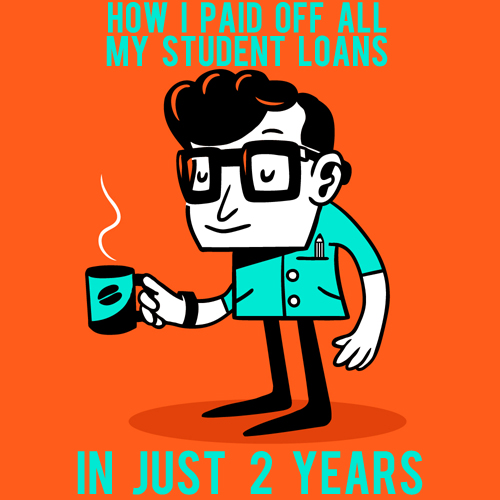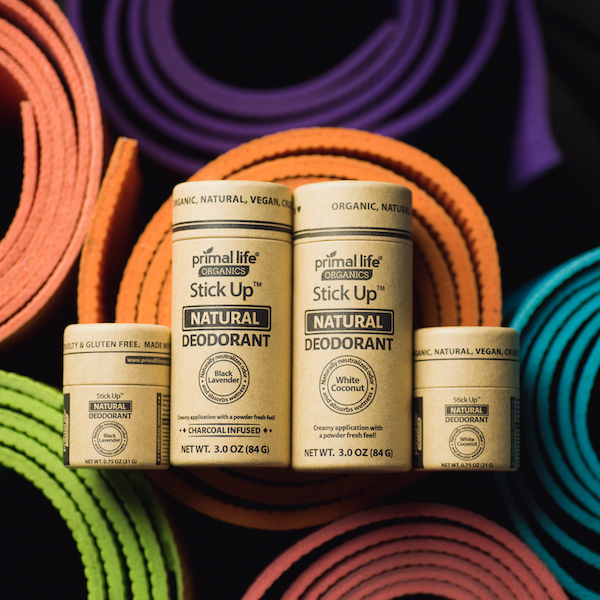

How I Paid Off All My Student Loans in Just 2 Years

In March last year, I proudly announced that I had paid off my student loans and requested a celebratory flyover by the Blue Angels. While the Blue Angels never came, it has been wonderful to spend nearly a year without paying a cent of student loan interest. Here is how I did it.
How I Paid Off My Student Loans in Two Years…
How I Got Into Student Debt in the First Place
Undergrad
When I was seven years old, I joined the local Cub Scout pack. After pinewood derby races, campouts, and popcorn sales, I graduated my way into the Boy Scouts. I stuck with Scouting through middle school and high school. One of my favorite parts of Scouting was going to camp for a week each summer. I loved it so much, that when I was 15 I joined up and got my first job at a Counselor in Training (CIT) at Peaceful Valley Scout Ranch just south of Denver.
While my friends made fun of me for still being in Scouts when I was that age, it was easy to brush it off. I had great friends and wonderful experiences through Scouting. When I was 15 and started working at camp, college tuition was the farther thing from my mind.
It turns out, the Denver Area Council of the Boy Scouts has a large scholarship fund for camp management who meet certain community service and GPA requirements. I qualified and stuck with it through college. I was happy to have had the John Madden Leadership Scholarship, with a match from the University of Colorado Foundation and Wells Fargo banks, pay 100% of my undergraduate college costs.
When I graduated, those same friends that made fun of me for being a Boy Scout started paying their student loans. Who’s laughing now!
Grad School
My family had put away some money for me for college, and I was fortunate to only need about $1,000 of it the entire time I was at CU. I worked hard while I was there and left with a finance degree that got me a good paying job fairly quickly after graduating.
About a year after leaving CU, I began to think about the next step in my education. I applied for grad school at a few schools, and decided that the best fit for me was the University of Denver. The biggest issue with that, however, was the cost. The total estimated cost of attendance was about $90,000.
I Worked Really, Really Hard
To get the best MBA experience, I knew I had to enroll full-time. But I didn’t want to leave my full-time job that was paying for me to live. I made the stupid obvious choice. I went to school full-time while working full-time.
For the next two years, I didn’t have a lot of down time. At the peak, I was taking 16 graduate credit hours while simultaneously working a full-time finance job. I was fortunate to have a supportive boss that allowed me to leave a little early two days a week to make it to class.
But my evenings often kept me at school past 10:00pm, my weekends were focused on studying and homework, and my days were spent at the office downtown. If you say you don’t have time to work even part-time while going to school, I can only snicker at your ignorance or laziness. (Unless you are in Law school where you are not allowed to have a job, or Med school where you would likely die of exhaustion if you tried to work at the same time.)
Keeping a $40,000+ income while going to school was incredibly important to my payoff strategy. I was taking the maximum federal student loans offered to me and still had to pay about $7,000 a quarter on top of that. Combining work income and my unused college savings for undergrad kept me above water while in school.
I Kept Expenses Low
Just because I had a good job didn’t mean I lived like I did. I found an old, rundown house near school with a roommate that cost me $400 per month plus my share of utilities. I usually packed a lunch and ate meals at home to keep costs low and save time.
I took the light rail to work thanks to a free pass with my tuition. I minimized driving to save on gas and maintenance costs.
In my little spare time, my entertainment was almost 100% from Netflix at about $10 per month, less than the cost of a movie.
I really lived like a college student to save money.
I Focused, Paid Extra, and Paid Often
Unlike a mortgage, student loans can be paid any time. I left school with four student loans with different balances. Two of the loans were subsidized (no interest) until 6 months after graduation. 2 of the loans accrued interest while in school. The rate on the loans, totaling about $60,000, was 6.4%.
I used a debt snowball to strategically pay off the loans. I went after the low balance loans first, as it would do the most to lower my minimum payment in case something unexpected happened. In general, I suggest people pay their highest interest debt first. I was only able to pick and choose because the interest rate was the same and I didn’t have any other debt (I had paid off my car during school).
I kept my expenses low after graduating, and was able to work out paying $700 per month into my student loans. I paid half of that, $350, each payday. I would pay the minimum each month on the larger loans and everything extra into the smallest one until it was gone. I kept that system going until I only had one loan to go.
I Was Relentless
While paying off my loans, I was very single-minded. I chose to keep myself on a strict budget so I could keep making aggressive overpayments each payday. At the same time, I was saving a modest emergency fund that rose to about $5,000.
One pay day, I realized I had enough in the bank to pay the entire remaining balance, $3,690.52. I went against my emergency fund rule and took some money out so I could pay off the debt once and for all. I figured that saving an extra $700 per month would help me build up my emergency fund quickly. (It did.)
Where I’m at Now
I was never really debt free. I didn’t use all of that college money for tuition, as I was working full-time and able to pay it quickly as I was in school and after I graduated. I ended up paying off my student loans exactly 2 years and 6 days after graduating.
That college money went toward a down payment for a condo. I just refinanced and have a balance just below $100,000. After paying for a $90,000 education in less than four years, I know I can handle that without any problem.
My interest rate is only 2.875% and I don’t have any other debt. I am not super worried about paying off the mortgage as fast, as I can probably beat 3% with smart investments. Either way, I know that I have the ability to be debt free in the foreseeable future.
You Can Do It!
Debt can feel overwhelming. It can be stressful. I can be crushing. But if I can do it, you can do it. I am not special, I just knew focused, saved where I could, worked really hard, and made paying off my debt a priority. You can do it too.







One pay day, I realized I had enough in the bank to pay the entire remaining balance, $3,690.52. I went against my emergency fund rule and took some money out so I could pay off the debt once and for all. I figured that saving an extra $700 per month would help me build up my emergency fund quickly. (It did.)
This really struck a chord with me. After reading this, I realized that I had $5000 in savings and $2600 in loans with a particular lender. It was scary, but I decided to pay it off the balance once and for all. I still have $9600 to pay off with another lender, but paying off the $2600 and seeing that my account is paid in full rocks my world. Thanks for sharing your story to inspire others!
I did the same thing when I finished paying off my car loan and my student loan. It was so close and within reach, so I just took a chunk of savings and paid them off in full.
The savings have come back ten fold since then.